Results
-
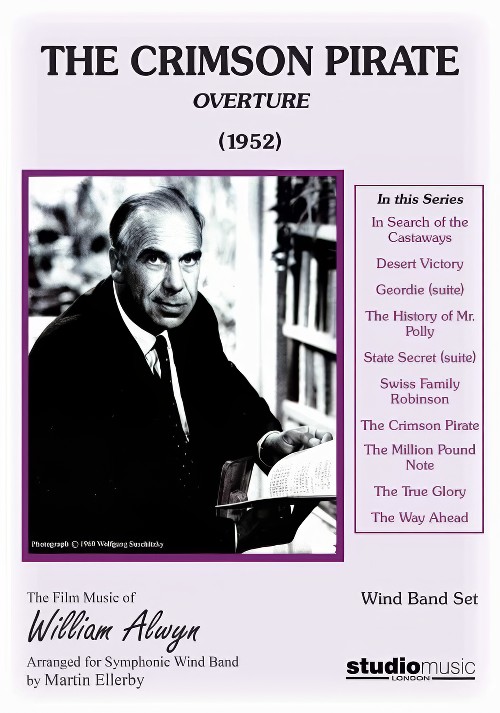 £87.95
£87.95The Crimson Pirate (Concert Band - Score and Parts) - Alwyn, William - Ellerby, Martin
William Alwyn (1905-1985) studied at the Royal Academy of Music where, at the age of 21, he was appointed Professor of Composition - a position he held for nearly thirty years. Apart from his vast output of serious music he contributed nearly 200 scores for the cinema. Starting, mainly with documentaries he wrote his first full feature-length score in 1941.The Crimson Pirate (1952) has music written in the form of an overture. As the title suggests the film was a swashbuckling adventure with romance thrown in for good measure. As always, Alwyn's music echoed the action on the screen!
Estimated dispatch 7-14 working days
-
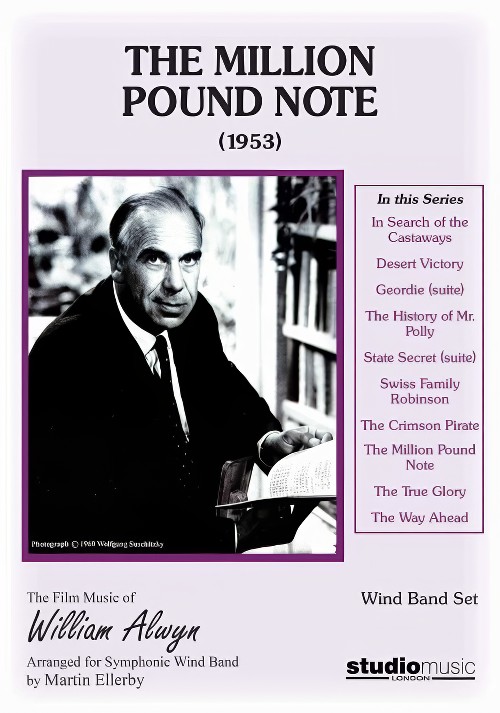 £74.95
£74.95The Million Pound Note (Concert Band - Score and Parts) - Alwyn, William - Ellerby, Martin
William Alwyn (1905-1985) studied at the Royal Academy of Music where, at the age of 21, he was appointed Professor of Composition - a position he held for nearly thirty years. Apart from his vast output of serious music he contributed nearly 200 scores for the cinema. Starting, mainly with documentaries he wrote his first full feature-length score in 1941.The Million Pound Note (1953) was based on a story by Mark Twain Set in Victorian times. For the main theme, Alwyn wrote this charming waltz with a stylish Victorian flavour.
Estimated dispatch 7-14 working days
-
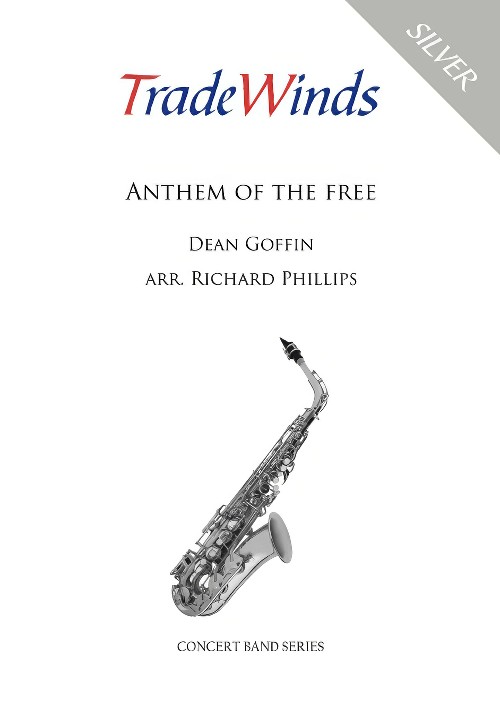 £39.95
£39.95Anthem of the free (Concert Band - Score and Parts) - Goffin, Dean - Phillips, Richard
New Zealand born, Sir Dean Goffin, was son of composer Henry Goffin who has previously been featured in this series as he composed the march - The Red Shield. Dean was a Salvation Army Bandmaster before enlisting into the New Zealand armed forces during the 2nd World War. He became Bandmaster of the newly formed band of the 20th Infantry Battalion and later on the 4th Infantry Battalion. Whilst he was serving in the Middle East he composed this march initially under another name 'Bel Hamid' The march was later adapted and renamed 'Anthem of the Free'.
Estimated dispatch 7-14 working days
-
 £7.95
£7.95Anthem of the free (Concert Band - Score Only) - Goffin, Dean - Phillips, Richard
New Zealand born, Sir Dean Goffin, was son of composer Henry Goffin who has previously been featured in this series as he composed the march - The Red Shield. Dean was a Salvation Army Bandmaster before enlisting into the New Zealand armed forces during the 2nd World War. He became Bandmaster of the newly formed band of the 20th Infantry Battalion and later on the 4th Infantry Battalion. Whilst he was serving in the Middle East he composed this march initially under another name 'Bel Hamid' The march was later adapted and renamed 'Anthem of the Free'.
Estimated dispatch 7-14 working days
-
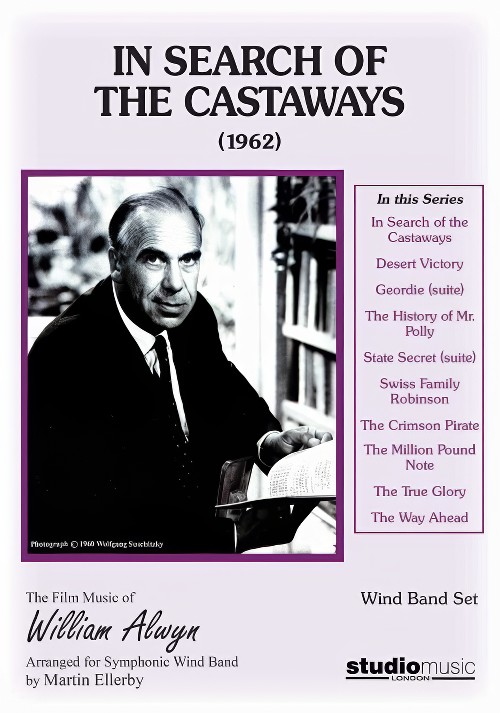 £94.95
£94.95In Search of the Castaways (Concert Band - Score and Parts) - Alwyn, William - Ellerby, Martin
William Alwyn (1905-1985) studied at the Royal Academy of Music where, at the age of 21, he was appointed Professor of Composition - a position he held for nearly thirty years. Apart from his vast output of serious music he contributed nearly 200 scores for the cinema. Starting, mainly with documentaries he wrote his first full feature-length score in 1941.In Search of the Castaways (1962) was his third score for the Walt Disney Company, and starred Hayley Mills and Maurice Chevalier. This suite includes a lilty waltz and a lively rumba keeping the percussion section busy!Duration: 5:45
Estimated dispatch 7-14 working days
-
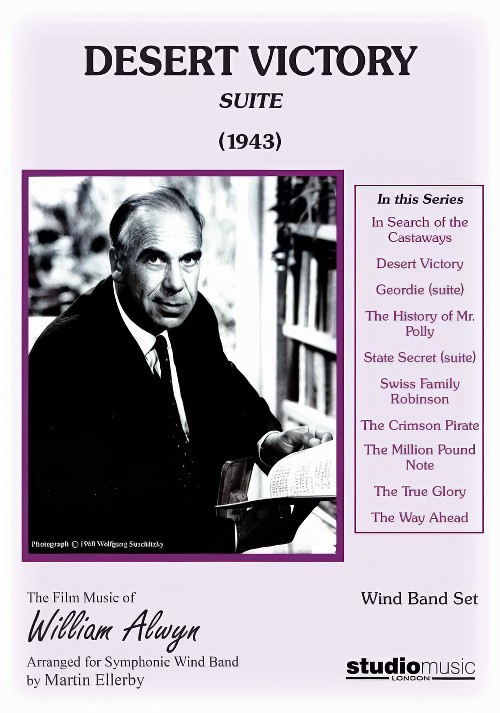 £94.95
£94.95Desert Victory (Concert Band - Score and Parts) - Alwyn, William - Ellerby, Martin
William Alwyn (1905-1985) studied at the Royal Academy of Music where, at the age of 21, he was appointed Professor of Composition - a position he held for nearly thirty years. Apart from his vast output of serious music he contributed nearly 200 scores for the cinema. Starting, mainly with documentaries he wrote his first full feature-length score in 1941.
Estimated dispatch 7-14 working days
-
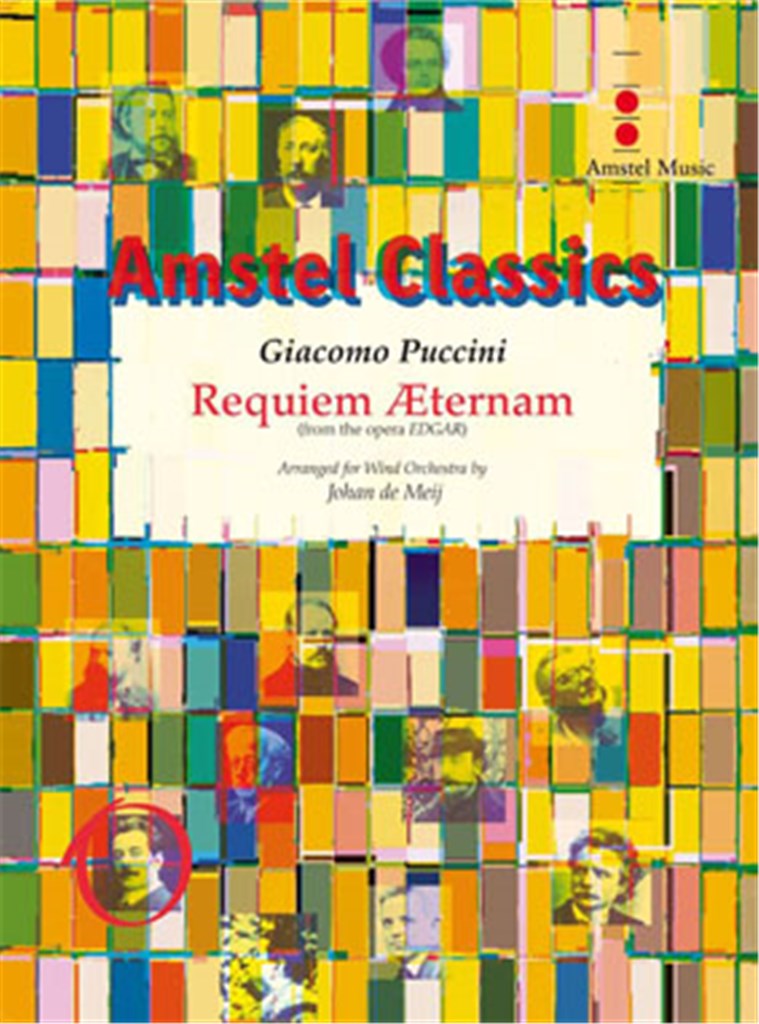 £68.00
£68.00Requiem Aeternam (from Edgar) (Concert Band - Score and Parts) - Puccini, Giacomo - De Meij, Johan
Giacomo Puccini was commissioned to write a second opera after the resounding success of his first, Le Villi. However, the original four-act, grand opera Edgar, to a libretto by Ferdinando Fontana, received a rather lukewarm reception at its premiere in La Scala in Milan in 1889. Initially, the work was only performed three times. Of all the planned performances in the subsequent two years, only one took place, in Lucca, Puccini's birthplace. There, the work was well received. Nevertheless, the composer decided to make drastic changes to Edgar the most radical being the reduction of the opera to three acts, as well as altering a few arias, characters and instrumental parts. In its revised form, the work was even less popular than before. The discarded fourth act later provided material for Tosca (the duet Amoro sol' per te), but Puccini never felt the need to defend Edgar as he did other less fortunate operas, such as La Rondine and Suor Angelica. On a piano excerpt for his female friend Sybil Seligman he even corrupted the title to 'E Dio ti Guarda da quest' opera' (may God preserve you from this opera). This did not prevent Arturo Toscanini performing the Requiem from the third act at Puccini's funeral in Milan Cathedral on 3 December 1924. The Requiem in the third act is being played when the long funeral procession carries the alleged body of Edgar, the confused young man hesitating between the love of the virtuous Fidelia and the exotic Tigrana. The mass hails Edgar as a hero, but a monk claims that he has betrayed his country for a few gold pieces. When the soldiers try to desecrate the body, they discover that the armor contains none. The monk reveals himself as Edgar. He wants to leave with his faithful Fidelia, but the vengeful Tigrana stabs him and kills Fidelia. Edgar grieves over the lifeless body of his beloved, while Tigrana is arrested and the people submerge into prayer. Duration: 3.30
Estimated dispatch 7-14 working days
-
 £189.99
£189.99Flashback (Concert Band - Score and Parts) - De Haan, Jan
A flashback is an interesting psychological phenomenon: a seemingly random trigger can bring back long-forgotten memories from the subconscious mind. The composer underwent a similar experience before writing this piece. He was asked to write a piece for The National Youth Fanfare Band in the Netherlands, one which he heard perform many years ago. All of a sudden he remembered Deep Harmony, a piece frequently programmed back then. He used his own flashback-experience as an inspiration to weave an old English hymn into his new composition, much like a musical flashback. The right idea at the right moment, as this piece will prove!Duration: 11:00
Estimated dispatch 7-14 working days
-
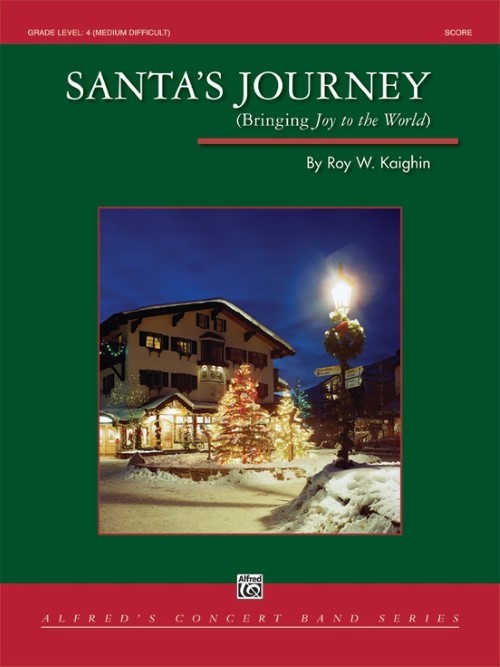 £77.50
£77.50Santa's Journey (Bringing Joy to the World) (Concert Band - Score and Parts) - Kaighin, Roy
As Santa starts his journey, bringing 'Joy to the World' by delivering presents to children - and adults too, he sets off on his majestic sleigh driven by his reindeer. A few elves have snuck into the sleigh to help. With a whoosh, he flies across the sky and over the snowy mountains. The music is in continuous motion, just like Santa's Sleigh, as he has many presents to deliver before morning.The quiet moments in the music depict Santa's arrival in small villages, away from the hustle and bustle of the big cities, touching the hearts of people everywhere. During his journey, Santa discovers the elves who have apparently lost some of the presents. Santa offers a gentle reprimand before the presents are ventually found by Elfie, the youngest Elf. After all the presents have been delivered, Santa heads back home as he calls out, "I'll be back next Christmas!"Duration: 4.15
Estimated dispatch 7-14 working days
-
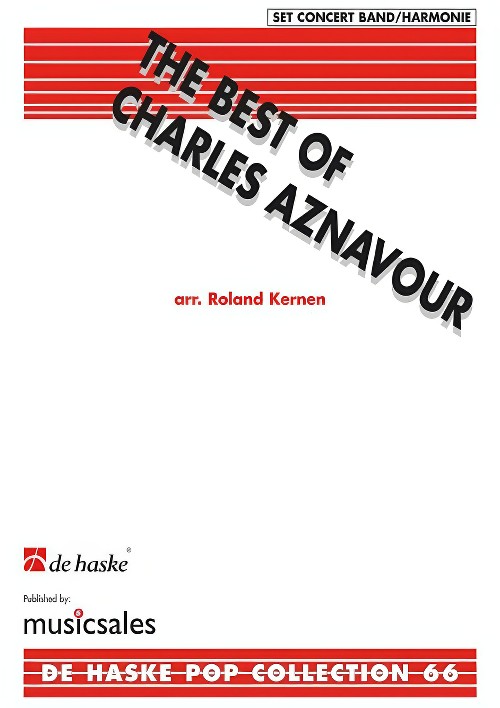 £122.50
£122.50The Best of Charles Aznavour (Concert Band - Score and Parts) - Kernen, Roland
Charles Aznavour, the son of Armenian immigrants, was born in 1924, in Paris. He finally launched his singing career in France with great effort; despite his lack of star looks and less than remarkable voice. However, he had two things going for him: powerful on-stage charisma and great willpower. It took him about twenty years to reach the top but when he did, his determination certainly paid off. He became a star singer/songwriter in France and his chansons were embraced throughout the rest of the world as well. The typical French atmosphere that pervades his music can be clearly experienced in this medley for concert band.
Estimated dispatch 7-14 working days
